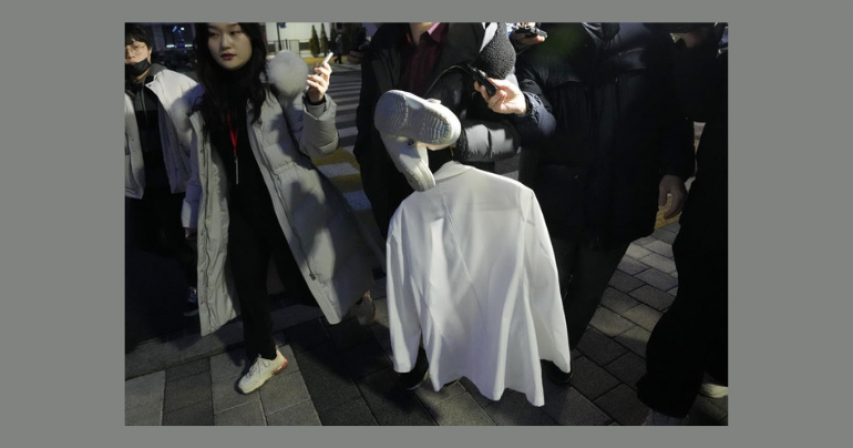South Korean Trainee Doctors Protest Reforms

Trainee doctors in South Korea have halted their work in protest against proposed medical training reforms, leading to disruptions in hospital services. Nearly 6,500 doctors have submitted their resignations, with 1,600 participating in the protest. The reforms, which include a 65 percent increase in medical school admissions starting from 2025, have sparked controversy, with the government insisting on their necessity to address the country's aging population. However, doctors argue that the reforms could compromise the quality of healthcare and have raised concerns about their salaries and social status. Despite government warnings and orders to return to work, the protest continues, reflecting deep-seated tensions between medical professionals and policymakers in South Korea.
South Korean hospitals faced challenges on Tuesday as trainee doctors staged a protest against proposed medical training reforms, leading to disruptions in medical services. Nearly 6,500 doctors, representing almost half of the junior workforce, have submitted their resignations, with 1,600 participating in the protest by walking off the job, according to figures from the health ministry.
President Yoon Suk Yeol affirmed the government's stance on the reforms, describing them as necessary measures to prepare for the care of South Korea's rapidly aging population. The reforms entail a significant increase in the number of students admitted to medical schools, amounting to a 65 percent rise starting from 2025. President Yeol emphasized the urgency of these reforms, highlighting the country's persistent struggle to augment medical school enrollments over the past three decades.
The government has called for the doctors to end their protest and return to work, warning of potential legal repercussions for those involved. However, South Korean law restricts the ability of medical staff to strike, complicating the situation further. Second Vice Health Minister Park Min-soo acknowledged the impact of the walkouts, noting cancellations of surgeries and disruptions in medical services, especially in emergency care.
The Asan Medical Center, one of South Korea's largest hospitals, reported adjustments in its operations due to the ongoing protest, with some surgeries being postponed. The government reiterated its commitment to maintaining emergency medical services and ensuring access to treatment for patients with serious conditions.
The proposed reforms have stirred controversy within the medical community, with doctors expressing concerns about the potential consequences on the quality of healthcare. Some doctors fear that the increase in medical school admissions could lead to overcrowding and a decline in standards. Additionally, there are apprehensions about the impact of these reforms on doctors' salaries and social standing.
Despite opposition from medical professionals, the reforms enjoy public support, with over 75 percent of respondents in favor, according to a recent Korean Gallup poll. The Korean Medical Association criticized the government's threats of legal action, likening them to a "witch hunt," and warned against the creation of a "socialist medical system."
The Korea Association of Medical Colleges has proposed a significantly lower increase in admissions, but the government has rejected this demand. The standoff between doctors and policymakers persists, reflecting broader tensions surrounding healthcare policy in South Korea.
By: Sahiba Suri





Comments